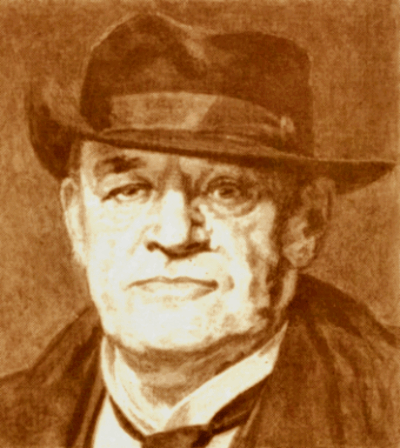 Belloc: A BIO-SKETCH The great Hilaire Belloc was probably the most famous and influential Catholic historian of the past two centuries. His rare understanding of the central role of the Catholic Faith in forming Western Civilization-----from the time of Christ up to our own-----still opens the eyes of many today. He was born in 1870 at La Celle, St. Cloud, France. His father was a distinguished French lawyer; his mother was English. After his father's death, the family moved to England. Hilaire did his military service in France, then returned to Balliol College Oxford, taking first-class honors in history when he graduated in 1895. It has been said that his ambition was to rewrite the Catholic history of his two fatherlands, France and England because the Protestants, who had gained the domain of history previously, had badly distorted it. In 1896 he married Elodie Hogan of Napa, California; the marriage was blessed with two sons and two daughters. During a period of 50 years-----until he suffered a stroke in 1946-----Hilaire Belloc wrote over a hundred books on history, economics, military science and travel, plus novels and poetry. He also wrote hundreds of magazine and newspaper articles. He served for a time as a member of the English House of Commons and edited a paper called the Eye-Witness. As an historian, Belloc is largely responsible for correcting the once nearly universal Whig interpretation of British history, which attributed Britain's greatness to her Anglo-Saxon and Protestant background. Hilaire Belloc visited the United States several times, giving guest lectures at both Notre Dame and Fordham Universities. Among his most famous books are The Great Heresies, Survivals and New Arrivals, The Path to Rome, Characters of the Reformation, and How the Reformation Happened. Hilaire Belloc died in 1953, leaving behind a great legacy of insight regarding the true, though largely unrecognized, inspirer of Western Civilization-----the Catholic Church. He and Chesterton were friends despite their polar personalities, and their close friendship contributed to Chesterton 's conversion to Catholicism. Belloc was known as "Old Thunder" because he was more bellicose in style when defending truth and the Catholic Church, while Chesterton was esteemed for his more amicable approach to apologetics. Both had an aversion to Puritanism.
|


